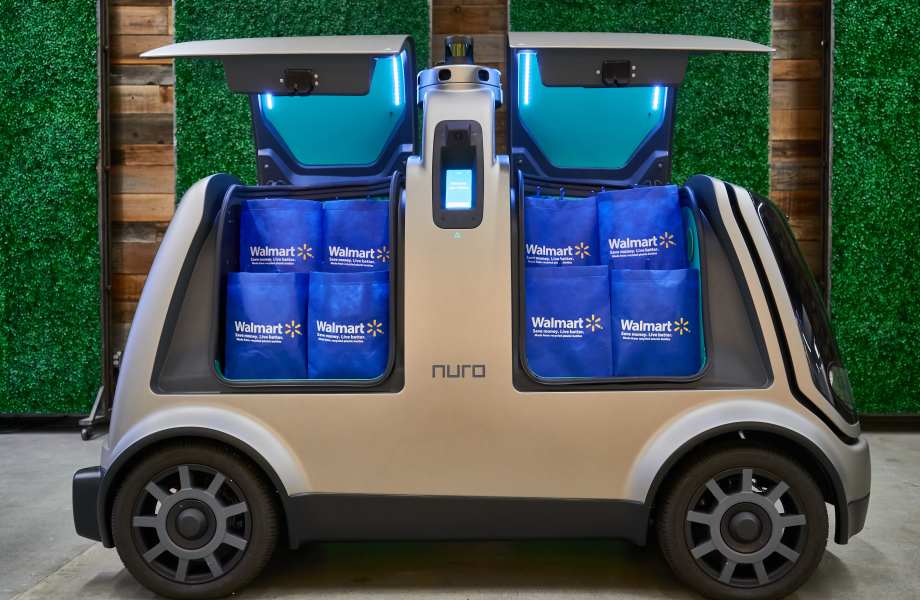
Wal-Mart announced a new test program on December 11 (local time). Starting in 2020, Houston stores start experimenting with automatic delivery of groceries. Wal-Mart is partnering with Neuro, a robotic company and autonomous vehicle manufacturer that has technology that automatically delivers products to customers. In this program, groceries ordered from Wal-Mart’s Internet shopping malls are delivered to some desired customers using a Neuro vehicle.
This automatic delivery service uses R2, a special cargo-only transport vehicle developed by Neuro. As with the Toyota Prius-based grocery delivery vehicle, neither driver nor guests can ride it. The purpose of the program is to determine the effectiveness of automated grocery delivery and how these services can improve Walmart customer service.
Until now, Neuro has focused on developing autonomous driving and combining customized driverless vehicles that deliver goods or services to local families. You can reserve 2 pieces of luggage in this vehicle, and 6 pieces of luggage can be stacked. It also received more than $1 billion in investment from Softbank, Gray Rock Partners, and Gaorn Capital. In March, it received an investment of $940 million from SoftBank Vision Fund.
This is not the first time Neuro has partnered with Wal-Mart. In 2018, it entered into a partnership with Kroger to test the self-driving version of Prius and the user-produced robot R1. In March, it moved the joint service with Kroger to Texas and started operating the Prius for autonomous driving. In 2020, Neuro is expected to jointly test with Kroger, Domino, and Wal-Mart using the second-generation robot R2.
Wal-Mart also partnered with Udelv earlier this year to conduct an automated grocery delivery experiment in Arizona. In the summer, a grocery delivery experiment was conducted in a large warehouse near the headquarters of Wal-Mart in Arkansas. In 2018, it also started a pilot business using Waymo and a grocery delivery truck. Wal-Mart says it can draw a roadmap for a future that will deliver groceries to millions of homes. To this end, it will try a method to provide groceries by applying automatic driving technology to the door of the customer’s house.
By the end of 2019, the Wal-Mart Internet shopping mall will provide grocery delivery services at nearly 3,100 delivery centers and 1,600 stores. Wal-Mart’s investment in the grocery internet shopping mall business provides customers with a choice to increase sales and compete in price with Amazon and Target. In the third quarter, the Wal-Mart grocery business expanded by 41%, exceeding expectations of a 35% increase in Internet sales. The increase in revenue led to a record-breaking record. Related information can be found here .


















Add comment